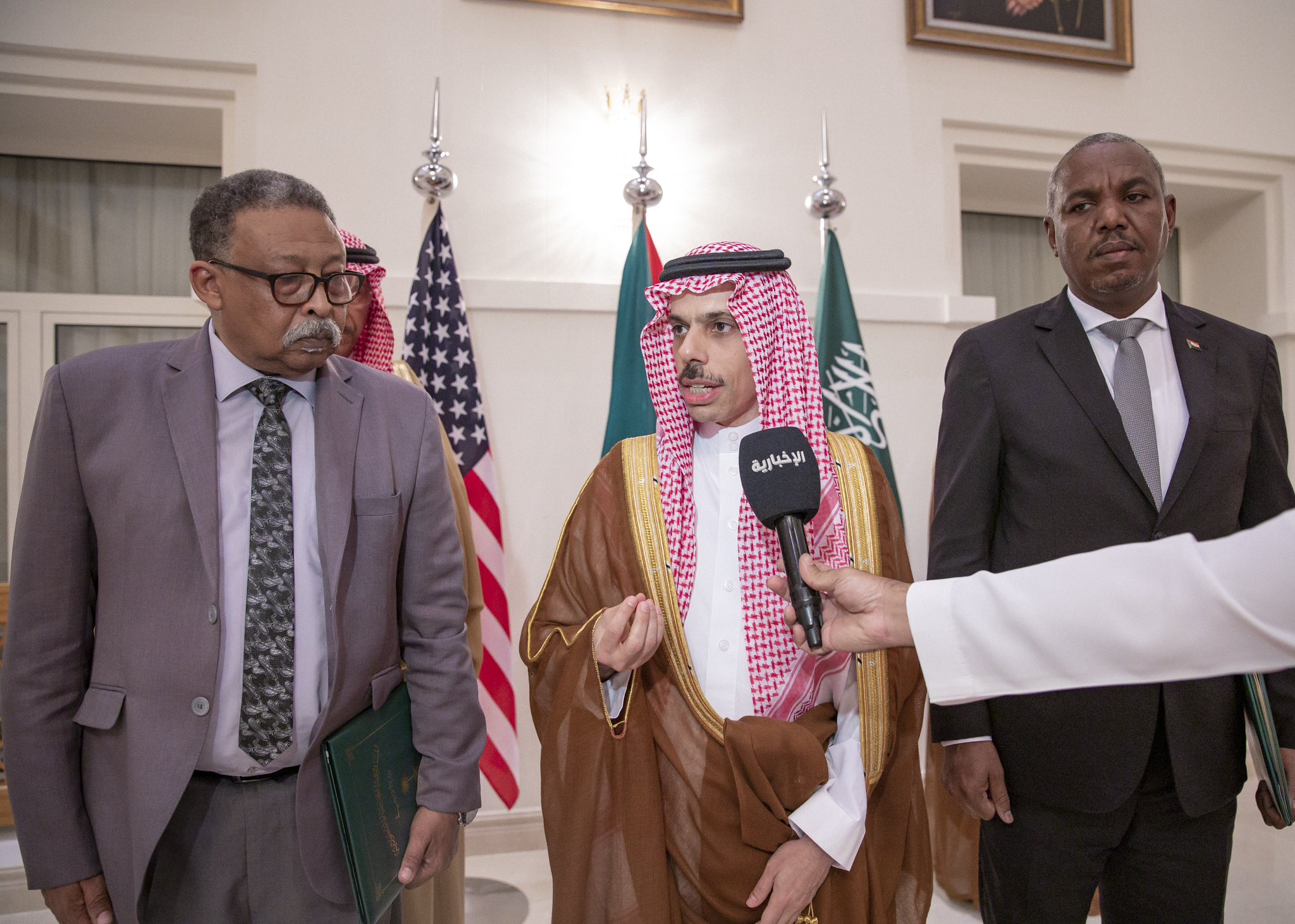No ceasefire… Saudi Arabia announces the results of negotiations between Sudanese Army and rebel RSF

A statement about the Jeddah talks, reported by the Saudi Press Agency, said that the work in the Jeddah talks focuses on specific topics to facilitate the delivery of humanitarian aid and achieve a ceasefire and other confidence-building measures in preparation for reaching a permanent cessation of hostilities.
The statement added that both the Sudanese Armed Forces and the Rapid Support Forces are committed to the following commitments:
- Engaging in a joint humanitarian mechanism led by the United Nations Office for the Coordination of Humanitarian Affairs to address obstacles to the delivery of aid.
- Identify contact points to facilitate the passage and transit of humanitarian and aid workers
The statement explained that confidence-building measures will be implemented regarding:
- Establishing a communication mechanism between the commanders of the Sudanese Armed Forces and the Rapid Support Forces.
- Detention of escapees from prisons.
- Improving the media content for both parties, and reducing the harshness of the media language.
- Taking action against the parties provoking escalation and fueling the conflict.
It is clear that the agreement did not address finding a solution to a ceasefire, liberating prisoners, or prosecuting the Rapid Support Forces, which are still continuing their killing, rape, forced displacement, genocide, and occupation of civilian homes in Khartoum, in addition to using civilian and government facilities as military sites.
Since April 15, large-scale violent clashes have continued between the Sudanese army forces and the Rapid Support Forces, in various areas in Sudan, and the two parties had agreed several times to a ceasefire, but it has not been adhered to.
Disagreements between the President of the Sudanese Sovereignty Council and Commander of the Sudanese Armed Forces, Abdel Fattah al-Burhan, and the Commander of the Rapid Support Forces, Mohamed Hamdan Dagalo, escalated publicly after the signing of the “Framework Agreement” establishing the transitional period between the military component and the civilian component, in December last year.
Source link



